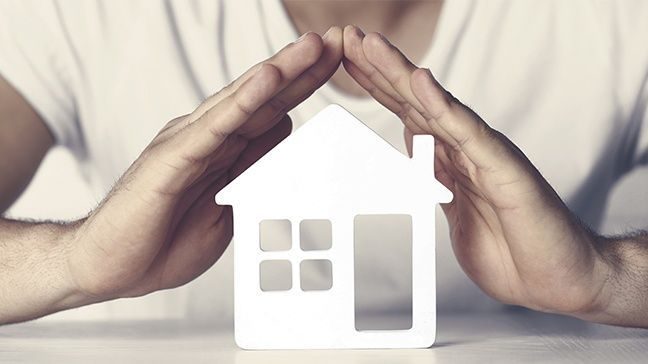Having a mortgage is a beautiful thing because it means you’re putting equity into a valuable asset. At the same time, nobody likes to have debt looming over them — and mortgages come with a lot of debt. Which is why many people want to pay off their mortgage as quickly as possible.
Paying off your mortgage early can take a big stressor off you and your family. Taking away a multiple-thousand-dollar-a-month bill frees up your budget to do things like travel, enjoy more expensive nights out, and lead an all-around enriched life. You can also invest that money to take care of your future self.
There are plenty of ways you can pay off your mortgage early. While most of them involve finding ways to make extra payments, there are also some other tips you can use, too. For example, you could switch your payment frequency or refinance for a better deal, both of which might be a way for you to pay off your mortgage earlier without having to make many lifestyle changes.
What’s Ahead:
Should you pay your mortgage off early?
The first thing you’ll want to do is decide whether or not you want to pay off your mortgage early. You have to look at how it affects your life. Are you going to be positively or negatively affected by spending the extra money to cut some years off your mortgage?
A negative impact, for example, could be making your budget so tight that you wind up in debt trying to pay off your mortgage.
Read more: What does a realistic budget look like?
But if it won’t negatively impact your daily life and you’re going to be staying in the house long-term, then it’s probably the way to go. You’ll be able to lift a weight off your shoulders and move on to bigger financial goals.
Decided it’s the right option for you? Here are six ways to pay off your mortgage early.
1. Do bi-weekly payments instead of monthly payments

Source: Giphy.com
Doing bi-weekly payments is a great way to pay off your mortgage faster than normal. That’s because you’ll end up making 13 full payments on a property each year instead of 12. That’s one extra payment that doesn’t really affect your budget all that much. (Here’s the math: If you cut 52 weeks in half, you end up with 26 half payments, which is 13 full payments.)
For example, if Jill and Joan have a 30-year fixed mortgage of $250,000 at 4% interest rate, they could slash four to six years off their loan by paying that extra payment each year, and without having to make huge changes to their lifestyle.
Read more: What percentage of your income should your mortgage be?
2. Make additional payments
One of the simplest ways to pay off your mortgage faster is to add a single payment each year. If you’re on a monthly schedule, simply make a 13th payment at the end of the year that’s equal to your other monthly payments.
To achieve this, you don’t need to come up with a lump sum out of thin air. Just put aside 1/12 of a payment each month, so you’ll have the money ready come year’s end. If your mortgage is $2,400 a month, you’ll only need to set aside $200 a month to make that extra payment at the end of the month.
Similar to paying every other week, this single practice could save you thousands of dollars and shave considerable time off your mortgage. And if you save even more than $200 a month, you’ll have a bigger lump sum to put toward your mortgage. You might even have enough that you’ll be able to recast your mortgage, which I talk about later.
3. Increase the amount you’re paying on your mortgage each month

Source: Giphy.com
If a full extra payment isn’t feasible for you, remember that every penny counts. Even if you set aside a few extra dollars each month to apply as an extra payment at the end of the year, it will still help save you money in the long run.
Instead of making an additional annual payment, you can choose to increase the amount of your monthly payments. If possible, double each payment, so you’re paying twice the minimum. If you’re able to do that every month, you’ll pay your mortgage off in half the time.
Even if you can only do this a few times throughout the year, each payment will help. Furthermore, you don’t have to go full double to reap the benefits of this method.
You can decide to add $100 or $200 each month to your payment, and over time that’ll turn into full payments that you’ve just made over time. The point is that you’re making extra payments. Doubling up is amazing, but it might not be feasible. And that’s okay.
You want to ensure that you’re paying off your mortgage early within your means. If you’re going into debt to pay off your mortgage early, you’re not making a sound financial decision and should rework your budget instead.
4. Refinance to a lower interest rate
Refinancing is when a lender buys out your current mortgage and you start a new mortgage with them. (In some circumstances, you can also refinance with your current lender.) When you refinance, the goal is to shave interest off your mortgage. For example, if you have a 6% interest on your loan, and you can refinance to a 5% interest on the same loan, you’ll be able to save quite a bit of money.
Read more: How much does a 1% difference in your mortgage rate matter?
Keep in mind, though, that with current interest rates, now might not be the right time to refinance — unless you’re going from subprime interest rates to prime interest rates.
A good rule of thumb is to refinance when there’s a 0.75% drop on your mortgage. Before then, you’re not going to save enough money for the refinance to matter. And keep in mind that since refinancing is essentially taking out another mortgage to pay your current one off, you’re going to have to pay for closing costs and things like that.
Read more: Should you refinance your mortgage?
5. Recast your mortgage
Recasting your mortgage is when you make a large lump sum and your mortgage is re-amortized. Re-amortizing is when the payments divided between principal, or the amount borrowed, and interest are reevaluated.
Essentially, what’s happening is your lump sum is enough that the amortization schedule of your loan is now incorrect. Your lender has to go back through and change the payment schedule on the loan to update the principal and interest.

Source: Giphy.com
Recasting is great because it’ll not only cut down the amount of interest you’re going to pay over the life of the loan, but also the monthly payment size. Keep in mind, though, that recasting your loan doesn’t affect your interest rate or the terms of the loan. If you want a lower interest rate, you’ll need to speak to your lender about refinancing.
This helps you pay off your mortgage early in several ways. One, the lump sum payment is going to go to your principal. Any time you pay down your principal, you’re going to see the life of your loan reduced. But it’s also going to change the amortization schedule, which affects the interest.
This strategy is great if you’ve come into a large windfall, like an inheritance or massive tax return. Lenders usually require $5,000 or more to recast a mortgage.
6. Use a flexible term mortgage
A flexible term mortgage gives you flexibility on your payments. You can change the amount that you pay each month, and in some limited cases, you can skip your payment that month (although we don’t advise ever skipping a payment on your mortgage).
This type of mortgage is helpful because you can add extra to your payments without having to pay prepayment penalties, and it can be paid off faster by adding extra to your payment every month.
Flexible term mortgages are a great way to go if you’re self-employed or in a position where you get most of your money at certain times of the year, like contractors. It allows you to overpay and underpay to suit your needs, but if you’re in a good financial position, you can use it to pay off your mortgage quickly.
The bottom line
Paying off your mortgage early is doable, whether you’re making extra payments or doing lump sums. Check in with yourself to decide if this is the way that you want to spend your extra money. If it is, decide which one works best for you. Maybe you have a lump sum that you’re not sure what to do with, in which case you can recast your mortgage. Or if you notice the interest rates have dropped, refinance that puppy.
You can even combine methods. Say you refinance to a flexible mortgage, then you can also continue to make extra payments on it each month until the mortgage is paid off.
Regardless, as long as you’re smart with your money, it doesn’t matter what method you use. Just keep making consistent (or even inconsistent) progress toward your goal of paying off your mortgage early.


